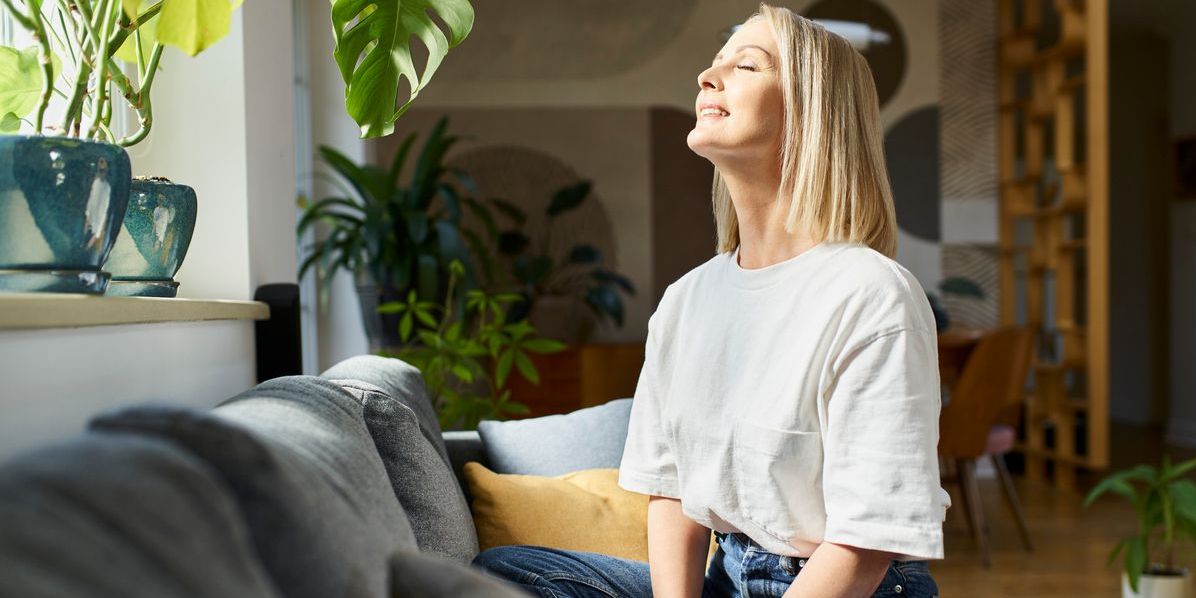Anxiety is a natural response to stress, but for many people, it can become overwhelming and disruptive to daily life. Whether you’re experiencing anxiety about work, personal relationships, or general life circumstances, managing it effectively is crucial for maintaining mental wellness. Fortunately, there are several practical strategies and techniques that can help you cope with anxiety and regain control over your thoughts and emotions. This guide explores some of the most effective ways to manage anxiety in a healthy and productive manner.
Understanding Anxiety
Before diving into coping strategies, it’s important to understand what anxiety is and how it affects the body and mind. Anxiety is a feeling of fear, worry, or unease, often in response to specific situations or events. It can cause physical symptoms like a racing heart, shortness of breath, dizziness, or trembling. While anxiety is a normal reaction to stressful situations, persistent or intense anxiety can be debilitating and may indicate an anxiety disorder.
Breathing Techniques
One of the simplest and most effective ways to manage anxiety is by practicing deep breathing exercises. Deep breathing helps activate your parasympathetic nervous system, which calms the body and mind. When you’re feeling anxious, take slow, deep breaths to counter the fight-or-flight response. Here’s a basic breathing technique you can try:
-
Inhale deeply through your nose for a count of four.
-
Hold your breath for a count of four.
-
Exhale slowly through your mouth for a count of four.
-
Repeat this cycle for several minutes, focusing on your breath and trying to clear your mind.
Deep breathing not only helps reduce anxiety in the moment but also trains your body to manage stress more effectively over time.
Mindfulness and Meditation
Mindfulness is the practice of staying present in the moment and accepting your thoughts and feelings without judgment. It can be especially helpful for managing anxiety because it helps break the cycle of negative thinking that often fuels anxious thoughts. Meditation is a mindfulness technique that involves focusing your attention and eliminating distractions in order to relax and clear your mind. Here’s how to get started:
-
Find a quiet, comfortable space where you can sit without interruption.
-
Close your eyes and focus on your breath.
-
If your mind starts to wander, gently guide your attention back to your breath.
-
Aim for 5 to 10 minutes of meditation each day, gradually increasing the time as you get more comfortable.
Regular mindfulness practice has been shown to reduce anxiety and improve overall mental health. It helps you learn to respond to stress in a calm and balanced way, rather than reacting with fear or worry.
Physical Exercise
Exercise is one of the most effective natural remedies for anxiety. Physical activity increases the production of endorphins, chemicals in the brain that act as natural mood lifters. Regular exercise can help lower stress levels, improve sleep, and reduce feelings of anxiety. Whether you prefer running, yoga, swimming, or walking, find an activity that you enjoy and can commit to regularly. Even moderate physical activity, such as a 30-minute walk, can significantly reduce anxiety.
In addition to the release of endorphins, exercise provides a healthy distraction from anxious thoughts and helps break the cycle of rumination. It also improves physical health, which can enhance your overall sense of well-being and mental resilience.
Cognitive Behavioral Therapy (CBT)
Cognitive Behavioral Therapy (CBT) is a widely recognized and effective treatment for anxiety. It involves identifying and challenging negative thought patterns that contribute to feelings of anxiety and replacing them with more realistic and balanced thoughts. Working with a trained therapist, you can learn practical techniques to recognize when you’re spiraling into anxious thoughts and how to reframe them.
In CBT, individuals often work on cognitive distortions, such as catastrophizing or overgeneralizing, which can intensify anxiety. By identifying these patterns and changing how you think about situations, you can reduce the frequency and intensity of anxious feelings. Many people find that CBT helps them manage anxiety long-term and equips them with tools to handle future stressful situations.
Establishing a Healthy Routine
Having a consistent daily routine can provide a sense of control and stability, which is especially important for people who struggle with anxiety. When your schedule is predictable, it can help reduce uncertainty and prevent overwhelming thoughts. A well-structured routine also supports healthy habits, such as regular meals, exercise, and sleep, which can all contribute to better mental health.
Here are a few tips for establishing a calming routine:
-
Set aside time each day for relaxation activities, such as reading, journaling, or taking a bath.
-
Plan regular exercise sessions to help manage stress and promote relaxation.
-
Prioritize healthy sleep by sticking to a consistent sleep schedule.
-
Schedule regular breaks during the day to avoid burnout or mental fatigue.
Having a routine that includes these activities can create a foundation for a healthier, more balanced lifestyle and help reduce anxiety over time.
Limit Caffeine and Alcohol
Caffeine and alcohol are substances that can increase anxiety, especially when consumed in large amounts. Caffeine, a stimulant, can heighten feelings of nervousness or restlessness, while alcohol, though it may initially provide a sense of relaxation, can disrupt sleep and exacerbate anxiety symptoms over time.
If you struggle with anxiety, try reducing your caffeine intake, particularly in the afternoon or evening. Similarly, limit alcohol consumption to help keep your anxiety levels in check and ensure better sleep quality.
Social Support
Reaching out to friends, family, or a support group is an essential part of managing anxiety. Talking to someone you trust can help you process your feelings and gain perspective on the situations causing stress. Isolation can worsen anxiety, so make an effort to maintain strong social connections, even when you’re feeling anxious.
If you’re uncomfortable talking to people in person, consider joining an online support group or seeking therapy through telehealth services. There are also many anxiety support groups available, where individuals can share their experiences and coping strategies.
Healthy Lifestyle Choices
In addition to specific coping strategies, maintaining a healthy lifestyle is crucial for overall well-being and anxiety management. Eating a nutritious diet, staying hydrated, and getting enough rest are all essential components of good mental health. When your body is healthy, it’s easier to manage stress and anxiety effectively.
Make sure you’re getting the right nutrients to support brain health. Foods rich in omega-3 fatty acids, such as salmon and flaxseeds, can help reduce anxiety, while magnesium-rich foods like leafy greens and almonds may help calm the nervous system. Staying hydrated is equally important for keeping your mind and body functioning at their best.
Conclusion
Coping with anxiety requires a multifaceted approach, including self-care strategies, professional support, and lifestyle changes. By incorporating practices like deep breathing, mindfulness, regular exercise, and healthy habits into your daily life, you can reduce anxiety and improve your overall mental wellness. Remember, it’s okay to ask for help when you need it, and taking small steps toward managing anxiety can lead to significant improvements in your quality of life.




